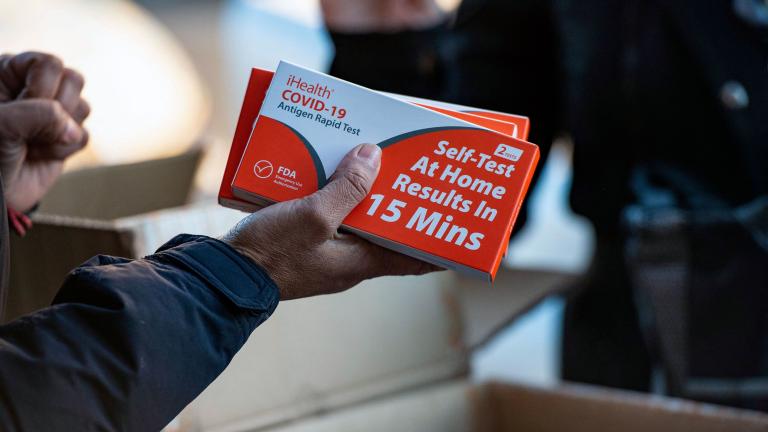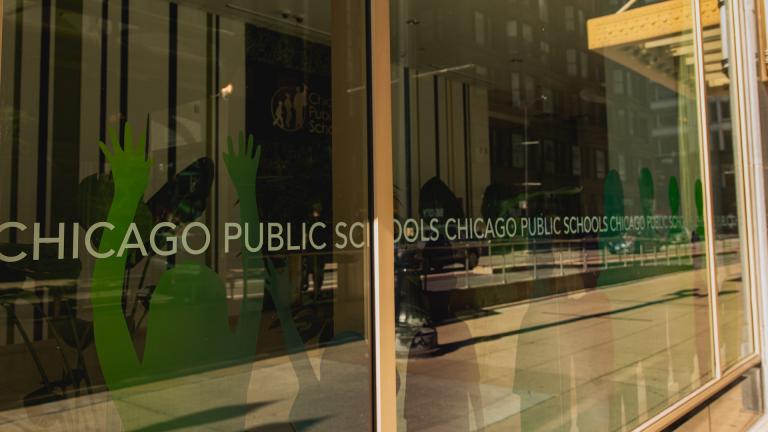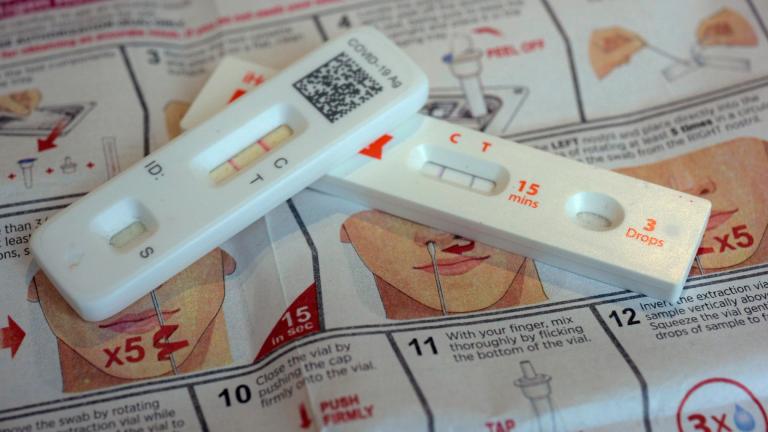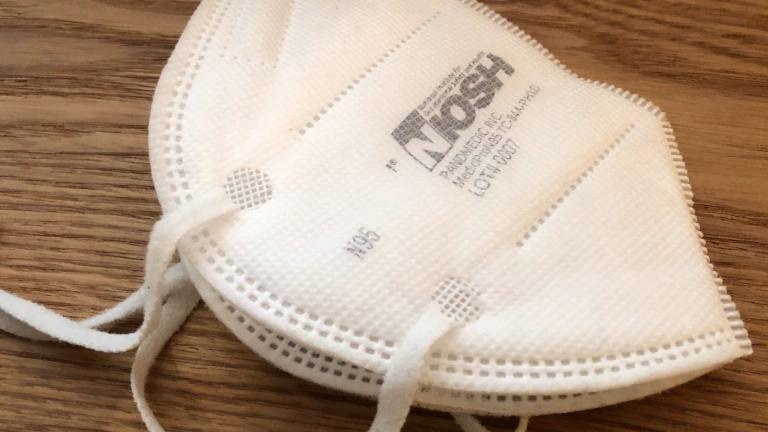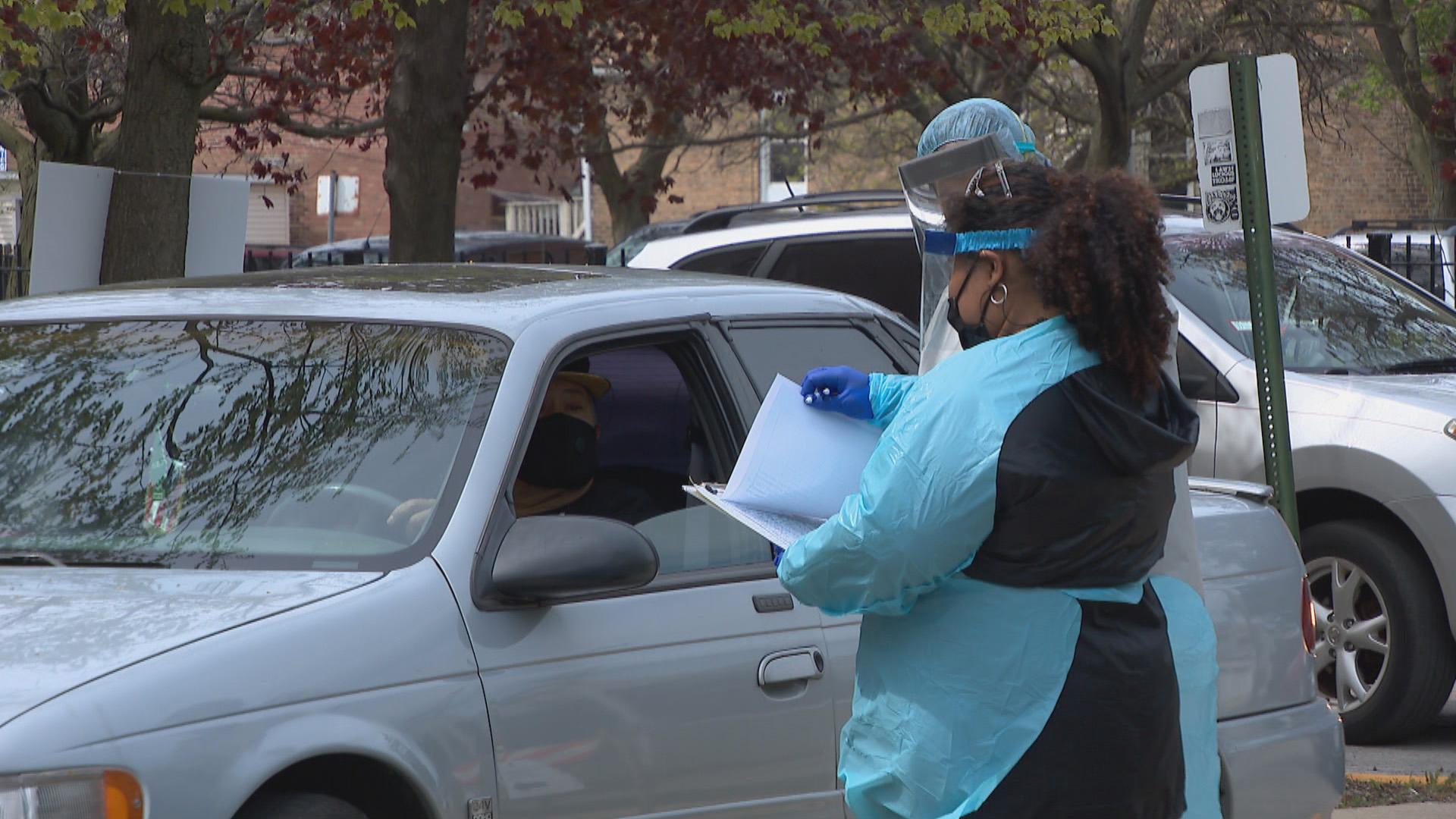 (WTTW News)
(WTTW News)
In need of a COVID-19 test? Don’t just go to any site, cautions Illinois Attorney General Kwame Raoul.
“The omicron variant has compelled many residents to seek COVID-19 testing in order to protect themselves and their families. The increased need for testing has also resulted in testing shortages, leading people to visit so-called ‘pop-up’ testing locations,” Raoul said in a statement. “It is important for people to know that these sites are not licensed or regulated by a government agency, and they should ask questions before visiting a pop-up testing location – or try to utilize a state-sponsored testing site.”
People should also consult with their health care providers for testing options and can find testing locations via the Illinois Department of Public Health, Cook County Department of Public Health and the U.S. Department of Health and Human Services.
While Raoul’s office can’t confirm the legitimacy of individual pop-up testing locations, it did offer advice for people who are unable to get a test from a state-sponsored site or through their health care providers.
Find out what types of tests the site administers, who analyzes the results and which laboratory the site uses. Raoul’s office encourages residents to determine if the lab is CLIA certified by searching the CDC’s website.
You should also ask when and how the test results will be communicated to you, as well as ask who you can call if you have questions or concerns about your results.
Find out what type of personal information you’ll be asked to provide and if there is an out-of-pocket fee. Testing sites often ask for identifying information, like a state ID, and insurance information, according to Raoul’s office. If you don’t feel comfortable providing that information, ask whether you can take the test without it.
Most testing sites will not request out-of-pocket payment and will instead bill insurance companies or seek reimbursement from a federal fund for people who are uninsured. Being asked to pay out of pocket is a red flag, according to Raoul, who urged people to use caution if a site asks for cash or upfront credit or debit card payments for a test.
Check to see if the site is following the Centers for Disease Control and Prevention’s recommendations for protecting against COVID-19, such as workers maintaining 6-feet of physical distance between people and masking indoors.
If something doesn’t seem right at a testing site, go somewhere else, according to Raoul. Individuals can file a complaint with the attorney general's office if they believe they’ve been a victim of fraud or if they were not charged at the time of a COVID-19 test but later received a bill.
With more people using at-home rapid tests, Raoul’s office warned of price gouging and “bad actors potentially seeking to profit from the pandemic.” Consumers should expect to pay $14-$25 for packs of at-home rapid test kits, such as those from iHealth or Binax Now, according to the Raoul, who warned of potential fake testing kits offered for sale. Visit the U.S. Food and Drug Administration’s website for a list of approved at-home test kits.
Consumers who believe they have experienced or witnessed price-gouging, or may have purchased fake test kits, can file a complaint with the attorney general’s office.
Contact Kristen Thometz: @kristenthometz | (773) 509-5452 | [email protected]



